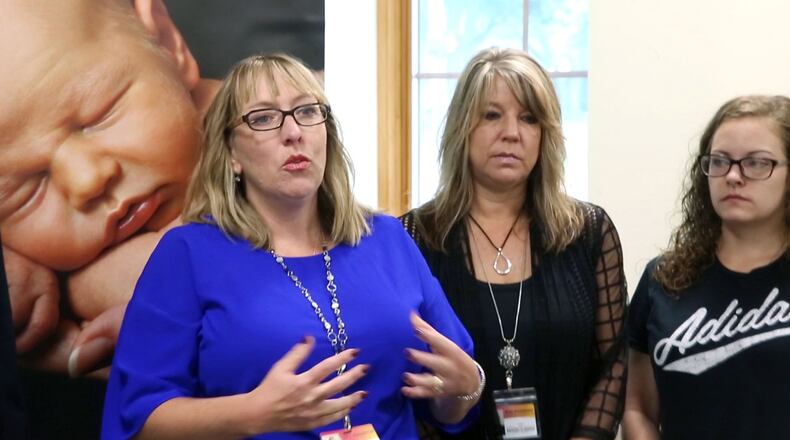MORE: Report: Child suicide rate in Ohio more than doubles over decade
Jill Kingston, the co-founder and executive director of Brigid’s Path, said the passage of the CRIB Act is important to the organization, which has not been eligible to receive Medicaid reimbursement. She said the center has survived so far on donations from individuals and foundations.
Kingston said passage of the legislation will now allow Medicaid to cover certain health care services provided to infants in residential pediatric recovery facilities and hospitals. It will also clarify that babies receiving services in residential pediatric recovery centers can continue to receive services after one year of age, and provide for activities to encourage caregiver-infant bonding.
“Babies born exposed to opioids are the most vulnerable victims of this epidemic. It is imperative to create a continuum of care for these babies, so that they and their families can get the right services at the right time in the right setting,” she said.
The CRIB Act earned support from U.S. Rep. Mike Turner, R-Dayton, in the House and Sens. Sherrod Brown, D-Ohio, and Rob Portman, R-Ohio, in the Senate. It passed the House last week as part of the SUPPORT for Patients and Communities Act.
“The opioid epidemic is unlike anything we’ve seen,” Turner said Thursday at Brigid’s Path.
Studies show that cases of NAS have tripled over the past decade. In Ohio alone, NAS increased six-fold between 2004-2011, from 14 cases per 10,000 live births in 2004 to 88 cases per 10,000 live births in 2011.
In 2015, the Ohio Department of Health released data that there had been 2,174 hospital admissions for NAS, and reported that an average of 84 infants were being treated for drug withdrawal by Ohio hospitals every day.
MORE: Student ingests ‘unknown substance’ at Centerville school, police investigate
Members of the Exchange Club of Dayton have served as Brigid Path’s volunteers and were happy to hear the CRIB Act passed. The group decided to collect diapers, baby items and money to support Brigid’s Path in August to show support for the organization.
“We notified area churches and other organizations soliciting their involvement,” said Ted Greenwood of the Exchange Club. “Significant contributions were made by One Lincoln Park residents, First Baptist Church, St Mark’s Episcopal church and The Access Center as well as the Dayton Exchange Club.”
MORE: Dayton man charged with murder in LaShonda Childs’ death
About the Author
